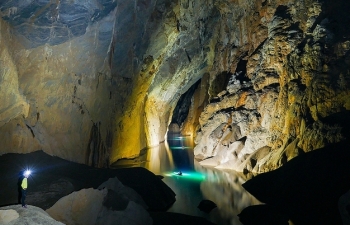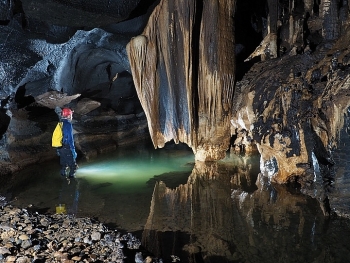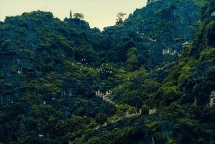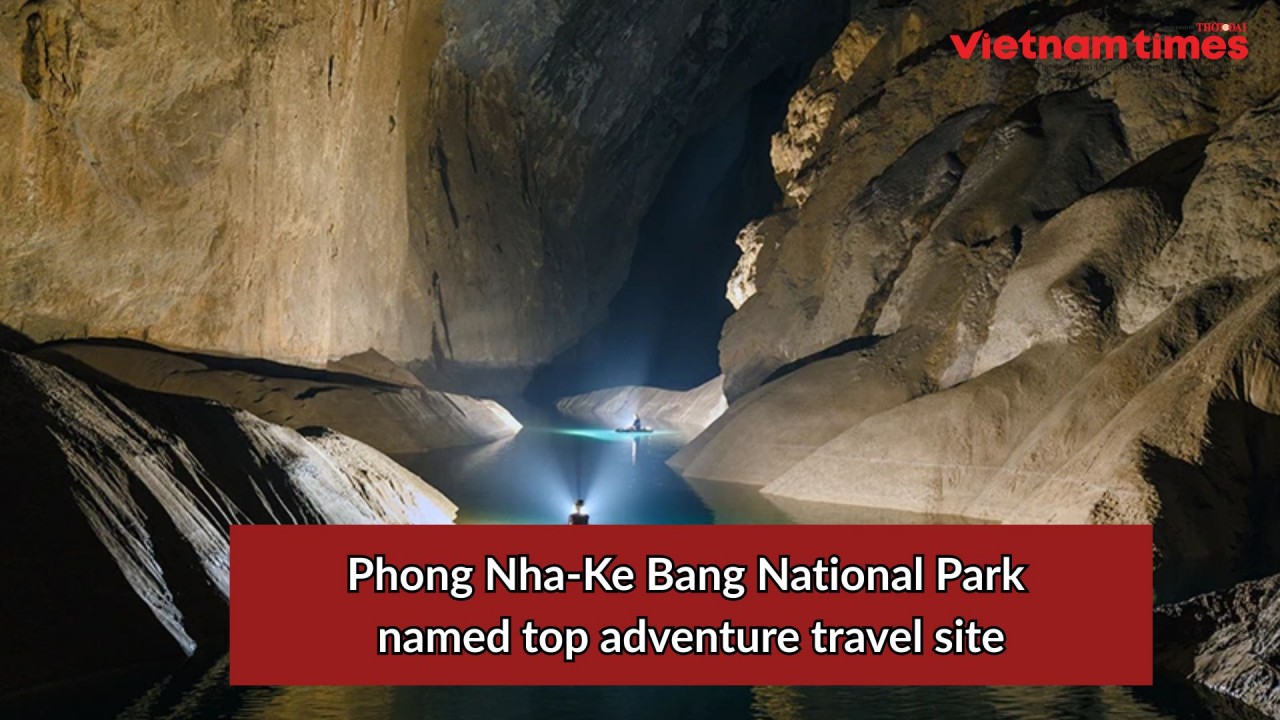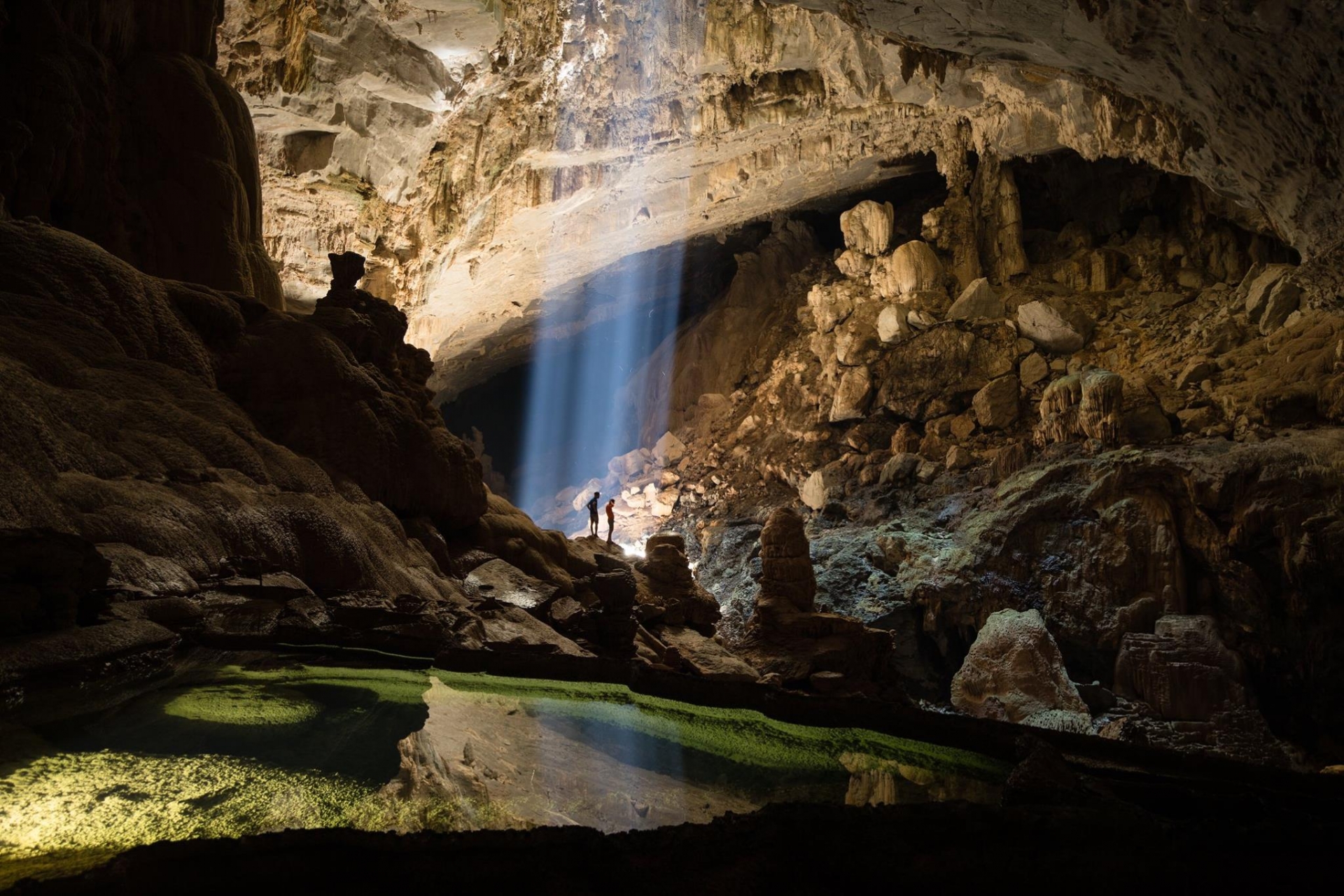 |
| (Photo: Phong Nha Explorer) | |
Home to the 360-million-year-old rock formations, the 31km long Paradise Cave is the longest and the most beautiful cave in Phong Nha, the central province of Quang Binh, according to Map Trotting.
With naturally primitive features, Paradise Cave looks like a landscape painting; making it a natural wonder that many have enjoyed since its opening in 2010. The Phong Nha Discovery magazine cited the spelunkers, describing the deeper one journeys into the cave, the more one feels the wells of heavenly clarity all around.
The cave height can reach to 72 m and up to 150 m wide. There are a series of white crystal stalactites (limestone deposits) resembling natural pillars and many other spectacular formations.
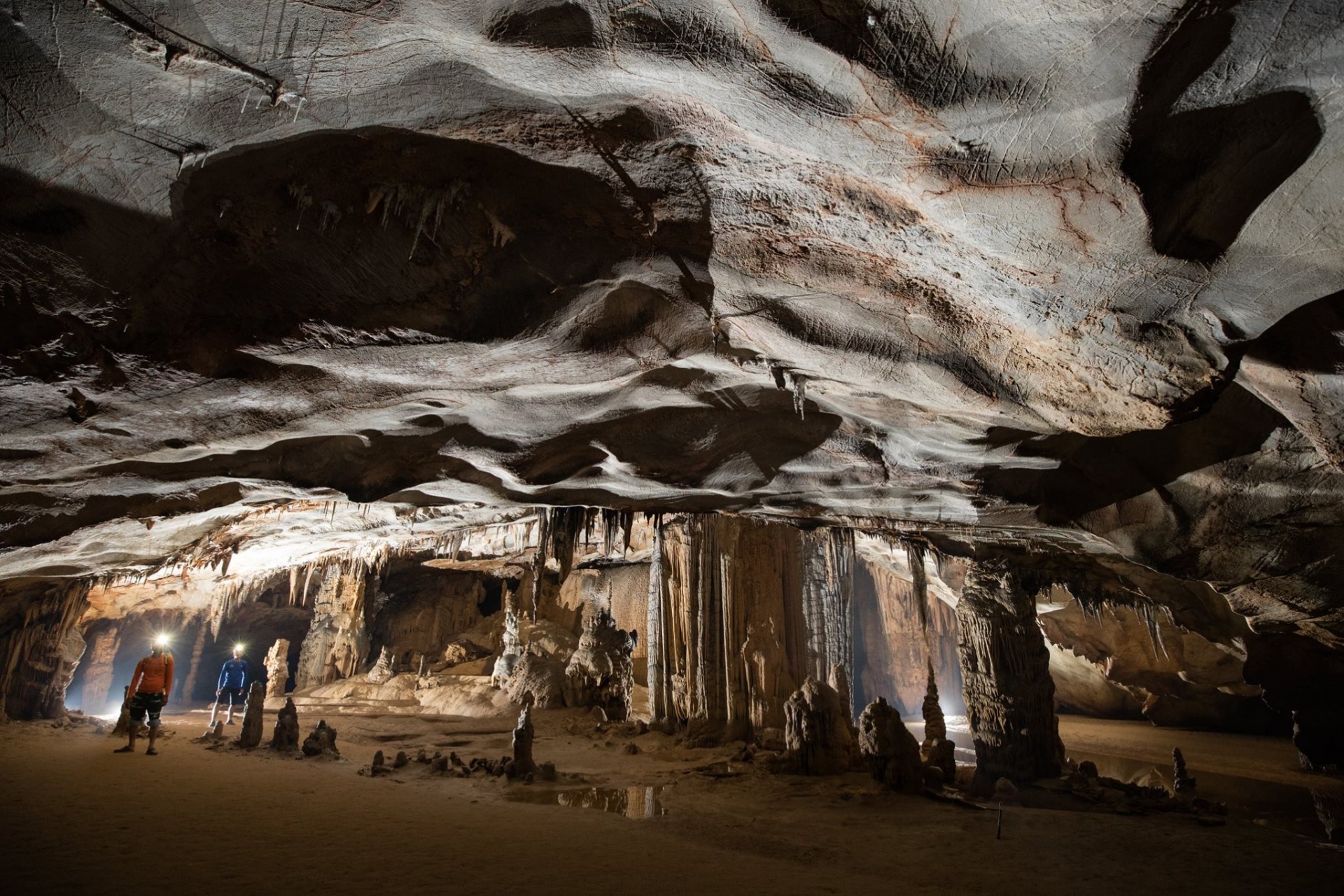 |
| (Photo: Phong Nha Explorer) | |
The discovery of Paradise cave
Ho Khanh, the same local man who discovered the largest cave in the world, Son Doong Cave, also stumbled upon Paradise Cave in 2005.
Shortly after his remarkable discovery, it was fully explored by a caving squad from the British Cave Research Association who were so impressed with the interior of the cave that they named it the Paradice Cave, Map Trotting reported.
During the initial explorations, the British scientists believed that the cave is no longer than 5 km but after further investigation, they realised it goes 31km deep making it the longest cave in the area. Maybe even the longest dry cave in Asia.
Shortly after the discovery, the 31m long cave was declared the longest cave in Phong Nha -Ke Bang National Park and opened to the public in 2010. Although as a visitor, you can only explore the first kilometre of the cave which is just about enough to see why it’s called Paradise Cave.
The scale of the cave reaching 72 m and 150 m wide is breathtaking. You’ll feel the cathedral-like magnitude of the place as you descend into the cave via a wooden staircase.
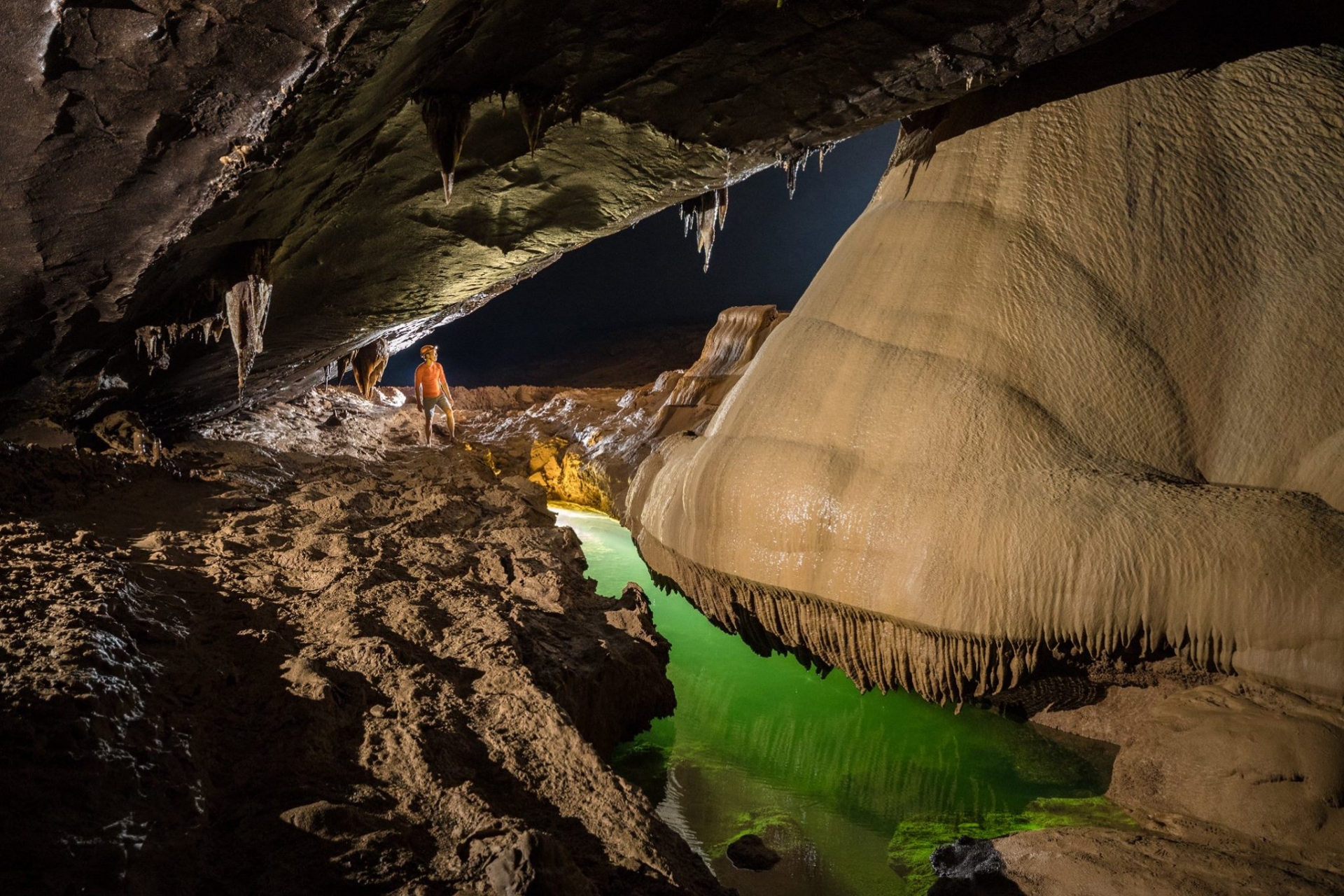 |
| (Photo: Phong Nha Explorer) | |
The Paradise Cave is tastefully lit up so you’ll be able to investigate in details some of these ancient rock formations. The wooden walkway built above the cave floor will take you so close to some of these rock pillars that you’ll be able to look at them from up close.
Considered to be the most beautiful cave in Phong Nha, it’s home to spectacular stalactites suspended from the ceiling like intricate chandeliers and stalagmites rising from the floor in all their glory.
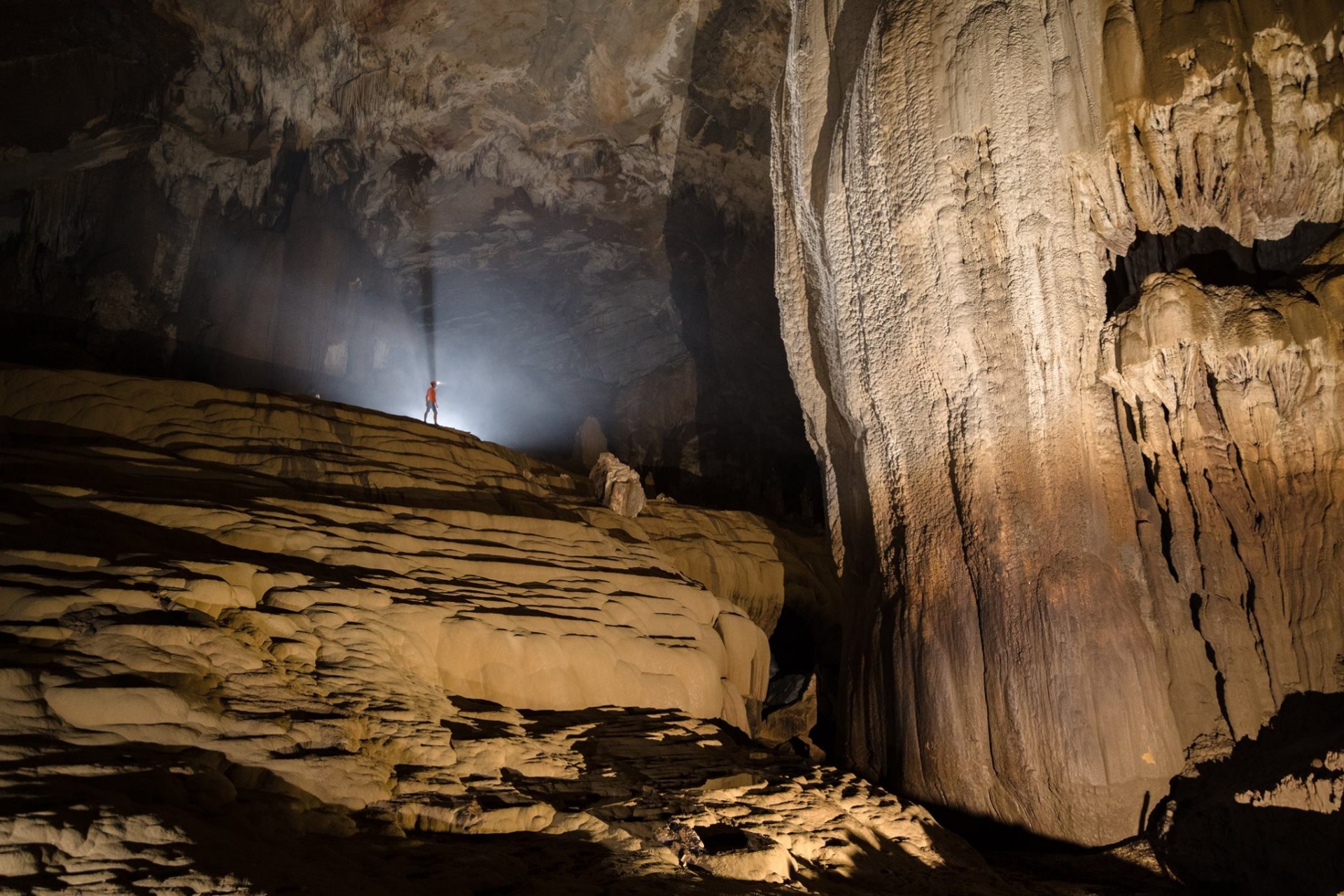 |
| (Photo: Phong Nha Explorer) | |
According to the British cavers, it gets even more spectacular the deeper you go, with glass-like crystal stalactites and other amazing formations thriving inside the cave.
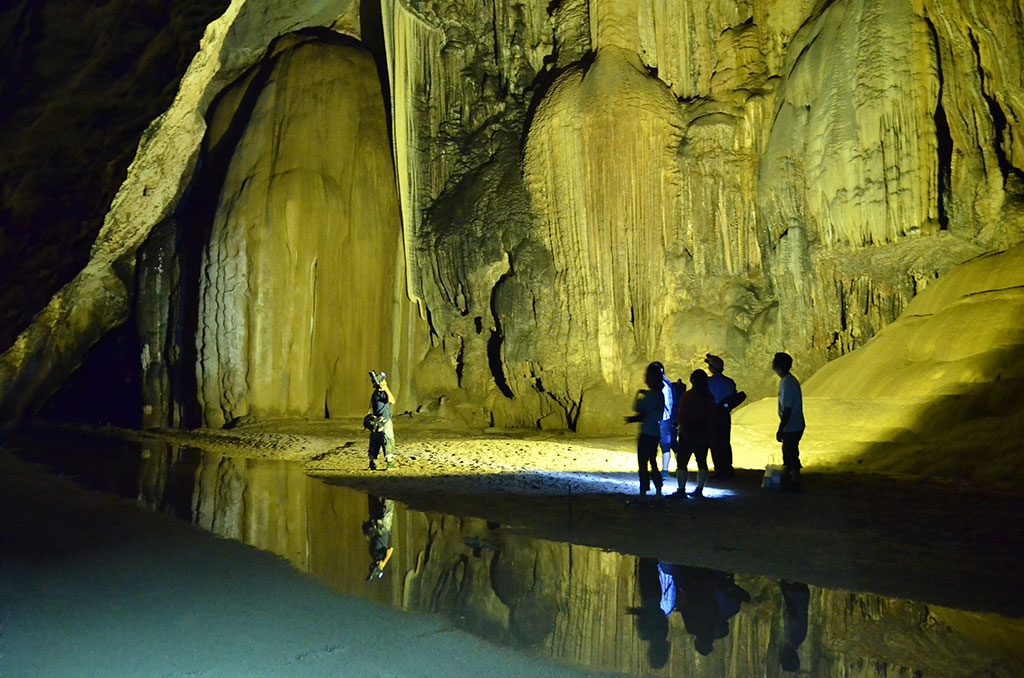 |
| (Photo: Da Na Quang Binh) |
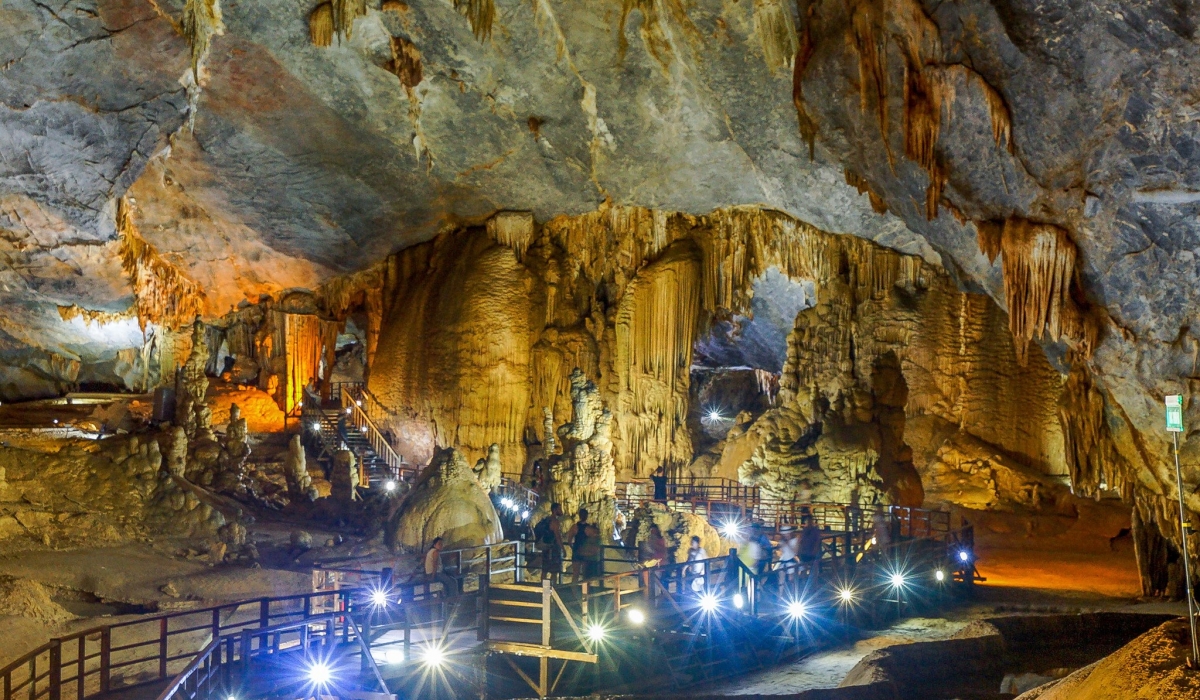 |
| (Photo: Phong Nha Explorer) |
The temperature inside the cave is comfortable as is the walkway. Unlike the Dark Cave, you don’t need any special equipment such as headlamps or swimwear, to explore the cave. Still, you should wear comfortable footwear, especially if you opt for the 1,6 km walk to the cave’s mouth from the parking lot.
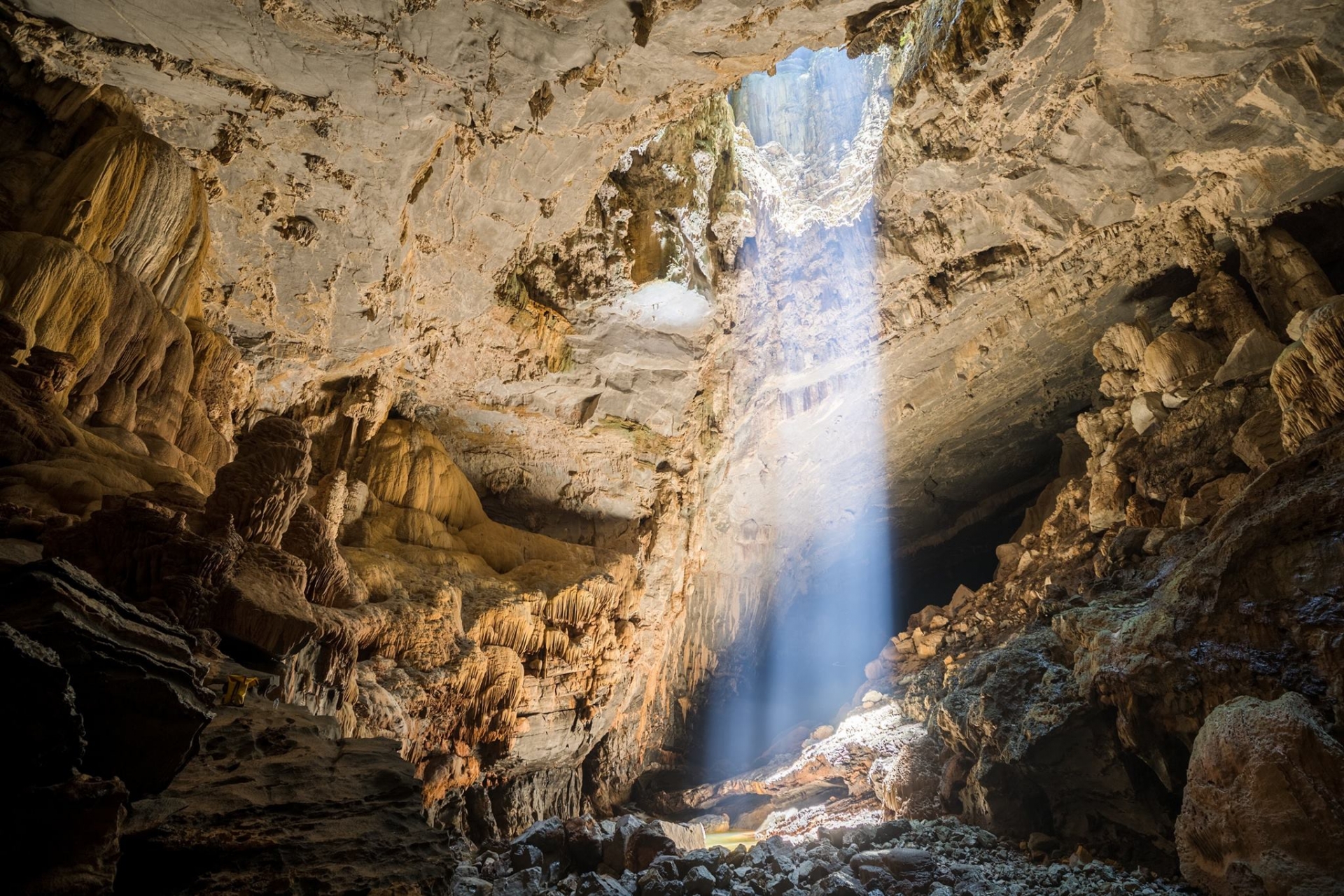 |
| (Photo: Phong Nha Explorer) | |
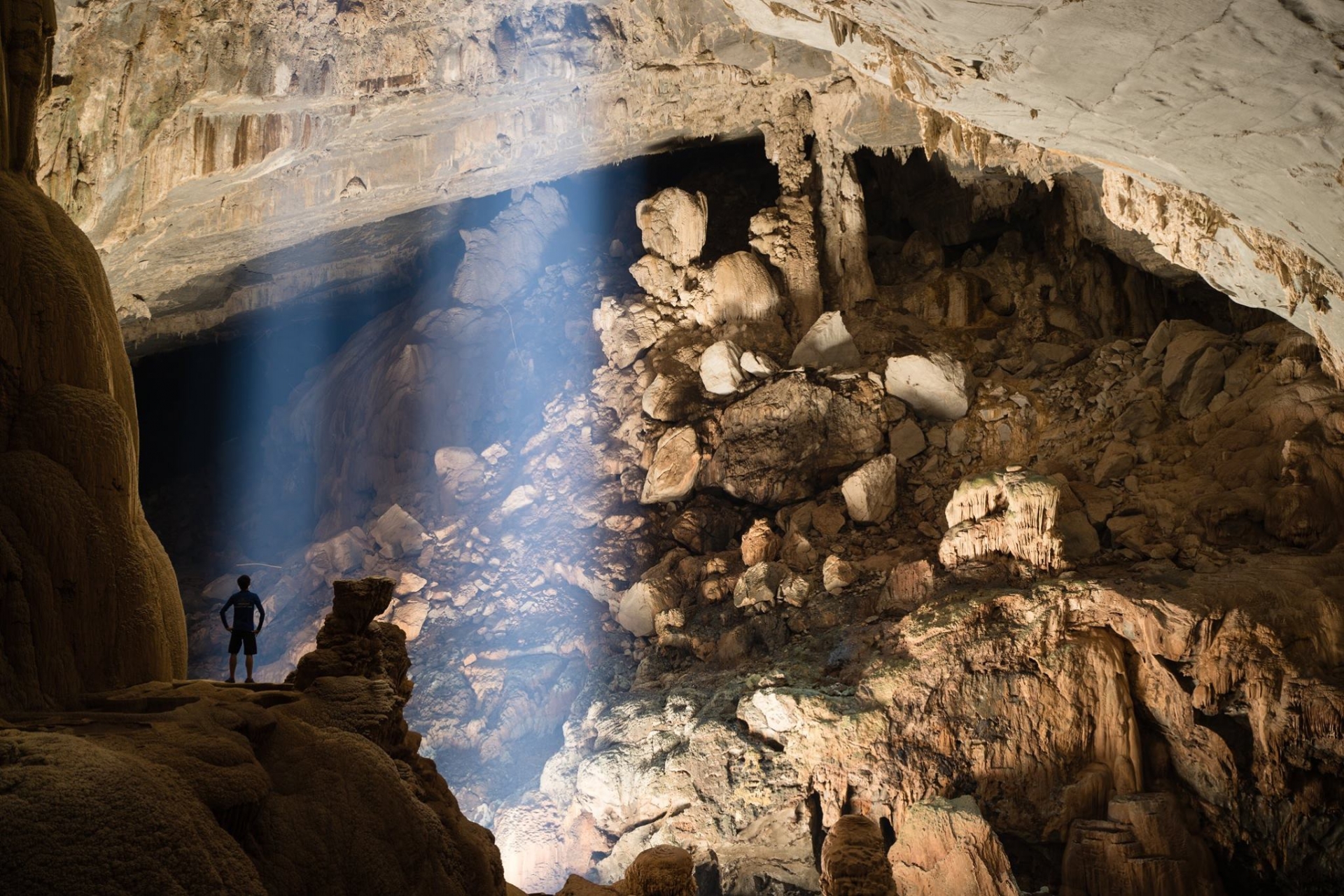 |
| (Photo: Phong Nha Explorer) | |
A new scorpion species were discovered inside the Paradise Cave in 2012. Those scorpions, however, just stay inside the nooks and crevices away from all the tourists and fuss.
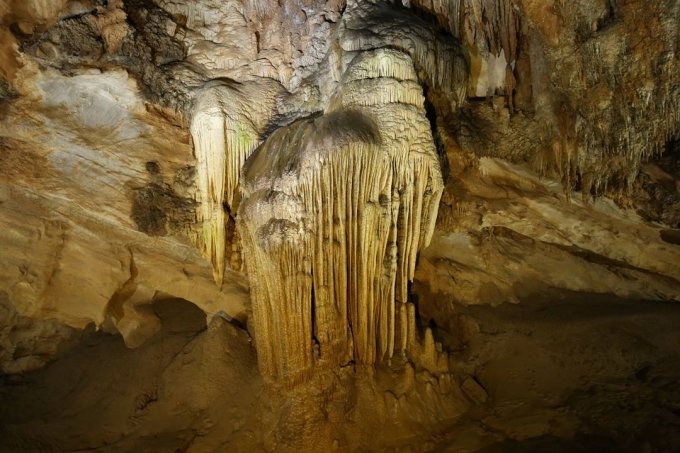 |
| (Photo: Travel Mag) |
To get to the Paradise Cave, you can either book a tour online, take a local tour, or rent a motorbike to explore it independently.
More about Phong Nha Ke Bang
Phong Nha – Ke Bang National Park in Quang Binh Province – the middle of Vietnam-is one out of ten world cultural heritages of Vietnam. Having high value of geologic history, terrain, and geomorphology, Phong Nha– Ke Bang is endowed with mysterious and grandiose landscapes.
Phong Nha -Ke Bang is compared as a huge geologic museum having high value, worldwide meaning due to its complicated structure, gathering place of various stones such as sandstone, quartz, schist, limestone containg silic, marl, granodiorite stone, aplite stone, pegmatite stone, etc. Phong Nha -Ke Bang contains geologic history of development complicated geology over 400 million years ago of the Earth. The important tectonic stages and fault movement phases, and folds created continuous mountains, sedimentary basin subsidence. These movements contribute to various geology, terrain, and geomorphology, as reported by Phong Nha Explorer.
 | Air route launched to provide passengers with aerial view of Phong Nha - Ke Bang An air route linking Dong Hoi city, in Quang Binh province, and Da Nang city will be launched on May 4 by the Ho Chi ... |
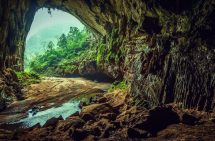 | Phong Nha - Ke Bang ranked second on top experiences in Vietnam: Lonely Planet According to Lonely Planet, a renowned travel publication, Phong Nha - Ke Bang National Park in the central province of Quang Binh has come in ... |
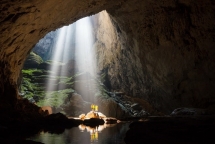 | 58 more caves discovered in Phong Nha - Ke Bang National Park As many as 58 new caves have been discovered in the Phong Nha - Ke Bang cave system in the central province of Quang Binh, ... |


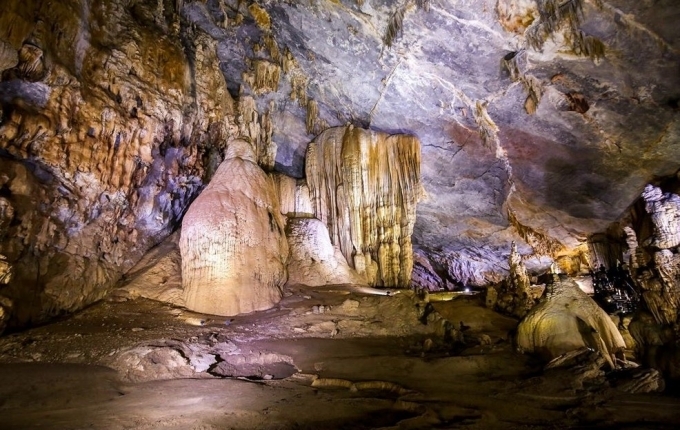







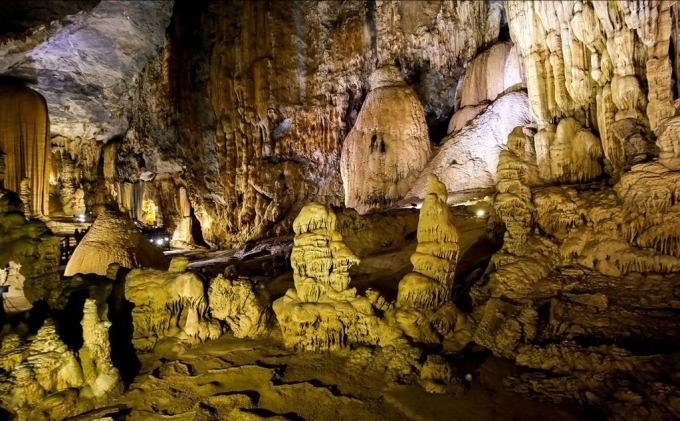
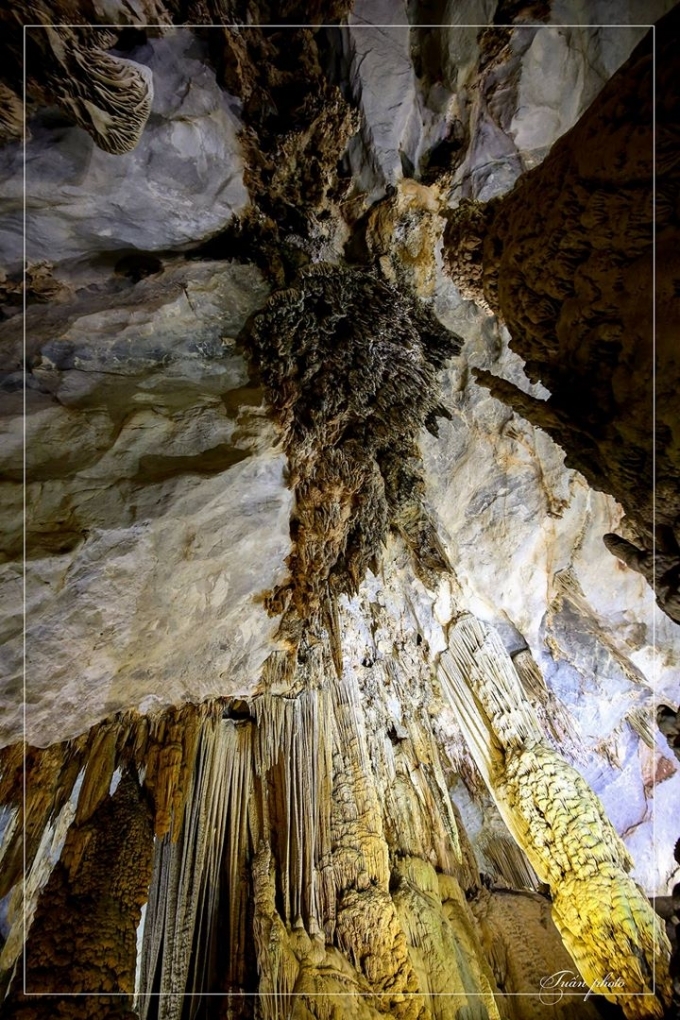
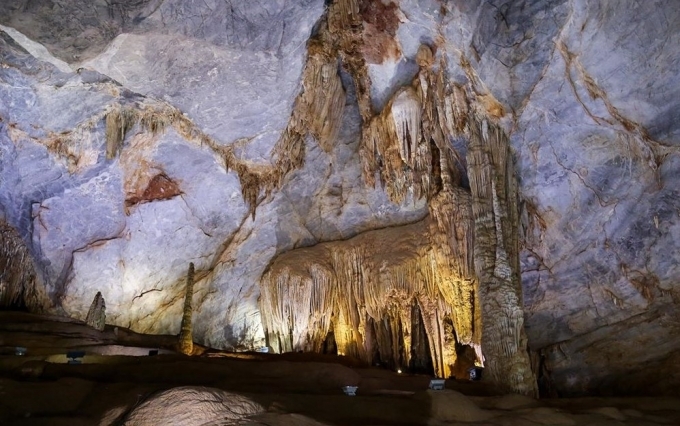
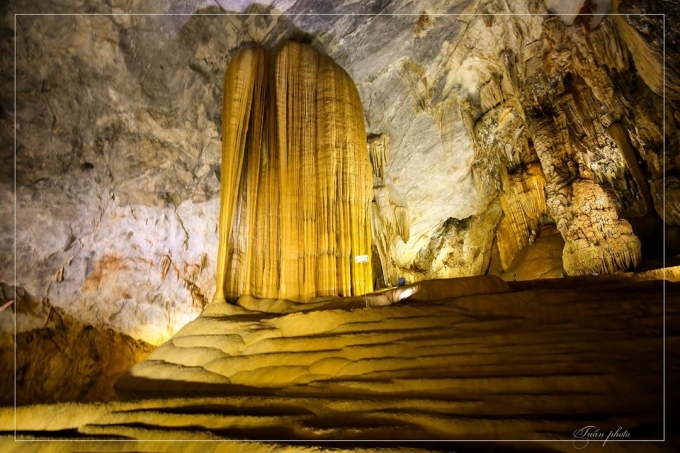
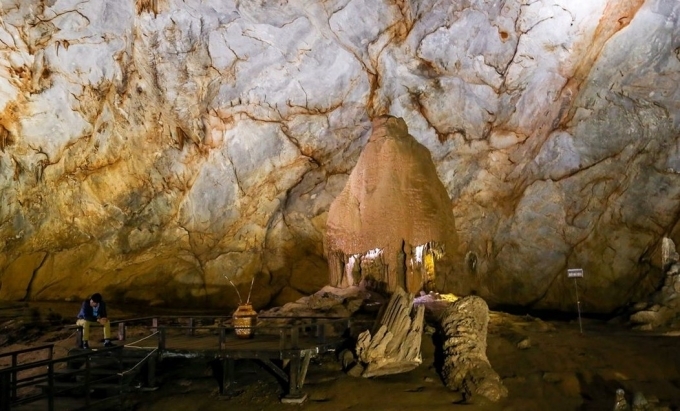
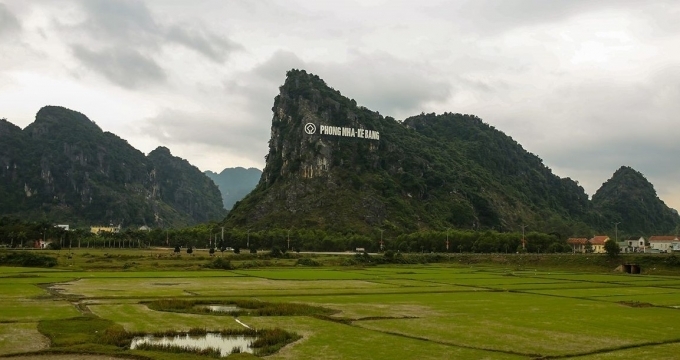


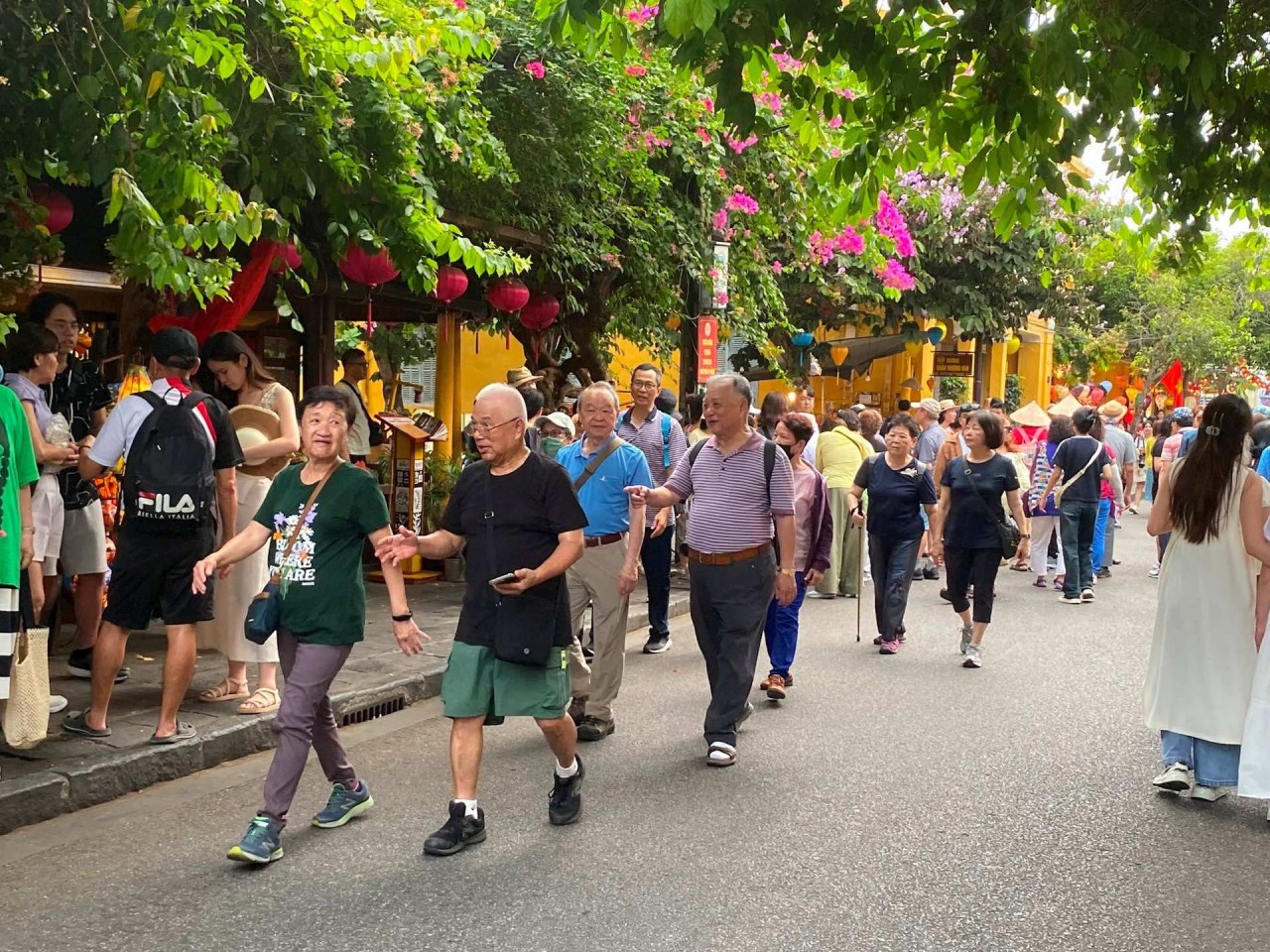 Travel
Travel
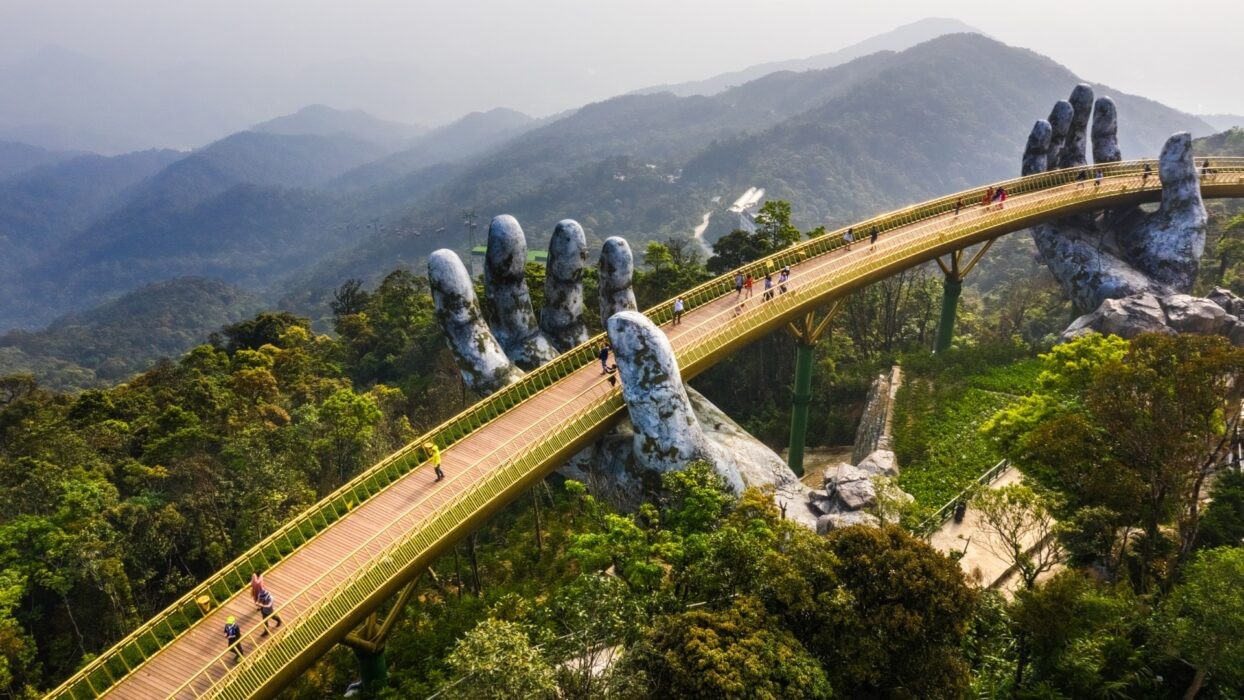 Travel
Travel
 Travel
Travel
 Travel
Travel
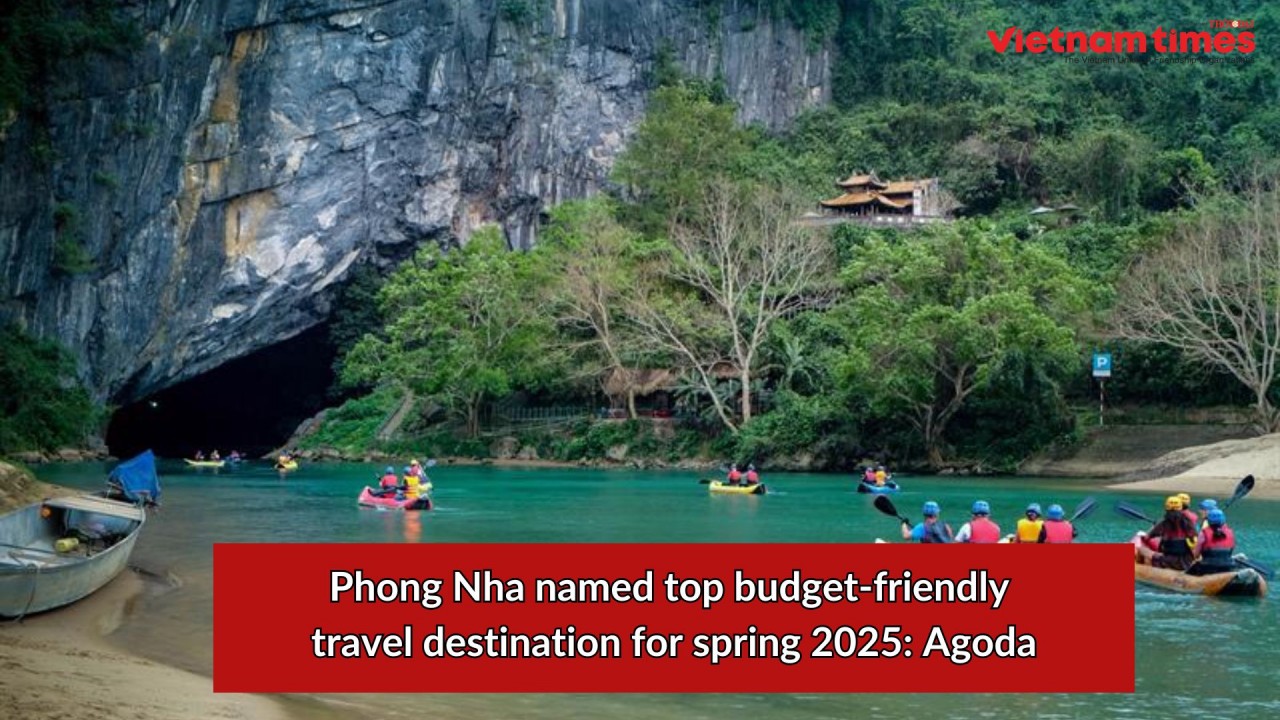 Travel
Travel
 Travel
Travel
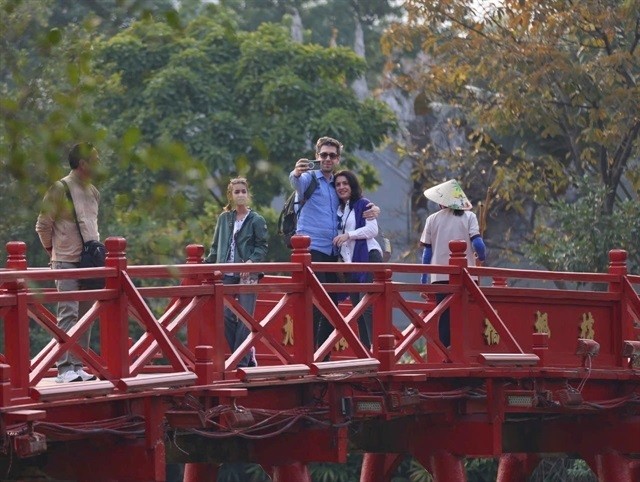 Travel
Travel
 Travel
Travel

